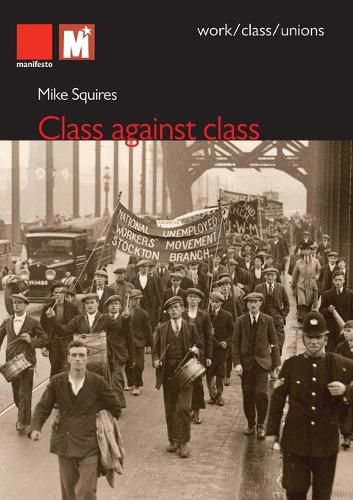Readings Newsletter
Become a Readings Member to make your shopping experience even easier.
Sign in or sign up for free!
You’re not far away from qualifying for FREE standard shipping within Australia
You’ve qualified for FREE standard shipping within Australia
The cart is loading…






This title is printed to order. This book may have been self-published. If so, we cannot guarantee the quality of the content. In the main most books will have gone through the editing process however some may not. We therefore suggest that you be aware of this before ordering this book. If in doubt check either the author or publisher’s details as we are unable to accept any returns unless they are faulty. Please contact us if you have any questions.
"Class against Class" by Mike Squires, published by Manifesto Press, is a detailed historical account of the Communist Party of Great Britain (CPGB) during the tumultuous period of the late 1920s and early 1930s. The book focuses on the CPGB's adoption of the "Class against Class" strategy, which was influenced by the Communist International (Comintern) and marked a significant shift in the party's approach to class struggle and political alliances.
Squires explores the internal and external challenges faced by the CPGB as it sought to implement this radical strategy, which emphasised direct confrontation with the bourgeoisie and rejected collaboration with reformist labor movements. The strategy was a response to the perceived failures of social democracy and the rise of fascism, aiming to position the CPGB as the vanguard of revolutionary change in Britain.
The book delves into the ideological debates within the CPGB, the influence of Soviet leadership, and the practical difficulties of mobilising the working class in a period of economic depression and political instability. Squires provides a nuanced analysis of the party's successes and failures, highlighting the complexities of revolutionary politics in a predominantly capitalist society.
Through extensive research and primary sources, "Class against Class" offers a critical examination of the CPGB's efforts to navigate the shifting political landscape of the interwar years. It sheds light on the broader dynamics of the international communist movement and the specific challenges faced by British communists in their quest for a socialist revolution. The book is a valuable resource for understanding the history of the British left and the enduring tensions between revolutionary ideals and pragmatic politics.
$9.00 standard shipping within Australia
FREE standard shipping within Australia for orders over $100.00
Express & International shipping calculated at checkout
This title is printed to order. This book may have been self-published. If so, we cannot guarantee the quality of the content. In the main most books will have gone through the editing process however some may not. We therefore suggest that you be aware of this before ordering this book. If in doubt check either the author or publisher’s details as we are unable to accept any returns unless they are faulty. Please contact us if you have any questions.
"Class against Class" by Mike Squires, published by Manifesto Press, is a detailed historical account of the Communist Party of Great Britain (CPGB) during the tumultuous period of the late 1920s and early 1930s. The book focuses on the CPGB's adoption of the "Class against Class" strategy, which was influenced by the Communist International (Comintern) and marked a significant shift in the party's approach to class struggle and political alliances.
Squires explores the internal and external challenges faced by the CPGB as it sought to implement this radical strategy, which emphasised direct confrontation with the bourgeoisie and rejected collaboration with reformist labor movements. The strategy was a response to the perceived failures of social democracy and the rise of fascism, aiming to position the CPGB as the vanguard of revolutionary change in Britain.
The book delves into the ideological debates within the CPGB, the influence of Soviet leadership, and the practical difficulties of mobilising the working class in a period of economic depression and political instability. Squires provides a nuanced analysis of the party's successes and failures, highlighting the complexities of revolutionary politics in a predominantly capitalist society.
Through extensive research and primary sources, "Class against Class" offers a critical examination of the CPGB's efforts to navigate the shifting political landscape of the interwar years. It sheds light on the broader dynamics of the international communist movement and the specific challenges faced by British communists in their quest for a socialist revolution. The book is a valuable resource for understanding the history of the British left and the enduring tensions between revolutionary ideals and pragmatic politics.